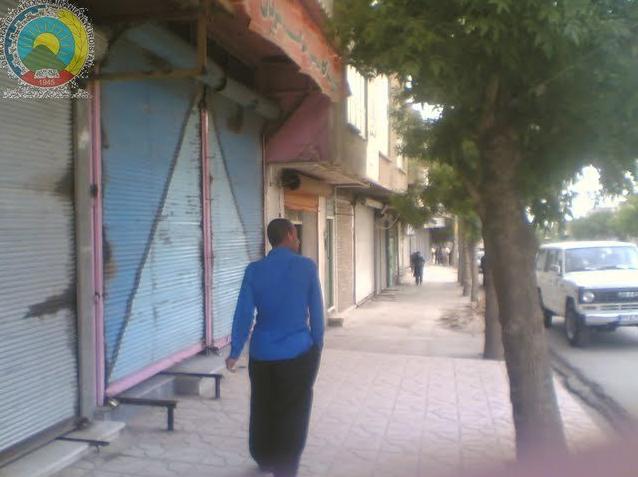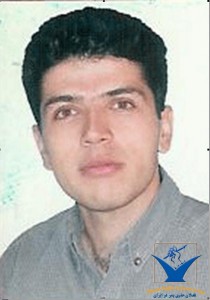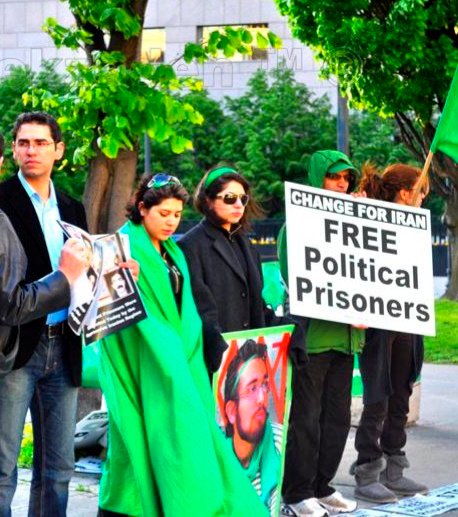The Latest from Iran (20 May): Back to Business
 Thursday, May 20, 2010 at 20:25
Thursday, May 20, 2010 at 20:25  1955 GMT: Former Vice President Abtahi Attacked? Reformist and Green sites are circulating the claim of Mohammad Ali Abtahi, Vice President during the Khatami Government, that he was attacked by plainclothes militia today as he was attending a memorial service in the south of Tehran.
1955 GMT: Former Vice President Abtahi Attacked? Reformist and Green sites are circulating the claim of Mohammad Ali Abtahi, Vice President during the Khatami Government, that he was attacked by plainclothes militia today as he was attending a memorial service in the south of Tehran.Abtahi wrote on his Facebook page that a vehicle suddenly blocked the route of his car, and he was attacked by motorcyclists with knives, cables, and tear gas. He reported, “I can say that I left the area with the broken glass and tear gas in a miraculous way. It was a very violent attage. No one came to help. They were very confident and dreaded nothing”.
Abtahi, who was detained for months after the June election and reportedly forced to make a public "confession", has published photos of the incident.
Iran Document: Simin Behbahani’s Poem for the Executed
Iran Videos: Former Diplomat Heidari Reveals the Regime
Iran’s Uranium: Why Can’t the US Take Yes for an Answer? (Parsi)
Iran’s Uranium: Washington “Can’t Afford to Look Ridiculous”, Makes Ridiculous Move (Emery)
Iran’s Uranium: US Shows a Middle Finger to Tehran…and Turkey and Brazil and… (Gary Sick)
Iran Document: Iranian Labour Unions “This is Not 1979″
The Latest from Iran (19 May): Fallout
1610 GMT: Film Corner. While two directors (Jafar Panahi and Mohammad Nourizad) are on hunger strike in Evin Prison, the film-meets-reality story of actress Kiana Firouz --- which EA featured on Tuesday --- continues:
A young Iranian actress named Kiana Firouz will attend the London premiere tonight of a film in which she plays a lesbian seeking asylum in Britain because the Iranian authorities are pursuing her. The Home Office rejects her application and sends her back to the Islamic republic, where homosexuality is a crime punishable by death.
Unfortunately for Kiana Firouz the film is not make-believe. It is based on her life. The Home Office has denied her asylum and she now faces the prospect of deportation to Iran followed by flogging, execution or both.
1400 GMT: Political Prisoner Watch. Kalemeh claims that journalist and filmmaker Mohammad Nourizad has been severely beaten by guards at Evin Prison. According to the website, Nourizad was taken from his cell by five security personnel and has suffered concussion and vision problems. He has now started a complete hunger strike in protest.
Nourizad was detained for writing letters to the Supreme Leader and the head of the judiciary, Sadegh Larijani, criticizing their approach to the post-election confrontation of protesters. He has been sentenced to 3 1/2 years in prison and 50 lashes.
1230 GMT: Larijani Takes a Side. Speaker of Parliament Ali Larijani has declared that the response of the US and "Western" countries to the Iran-Brazil-Turkey agreement "proved that they are not sincere in the [discussion of] a fuel swap" over Iran's uranium stocks.
The significance of the statement is more internal than external: some Larijani allies, like Ahmad Tavakoli, had criticised the Ahmadinejad Government for agreeing to let Iran's uranium go outside the country. The Western response allows Larijani to focus on the perfidy of foreigners rather than engaging in that internal debate.
1220 GMT: The Executions. We've posted a poem by Simin Behbahani for the five Iranians executed on 9 May.
0915 GMT: Not Kahrizak. Alireza Avaee, the Chief Officer for the Ministry of Justice, has announced that a "new" and "good" prison has opened near the Kahrizak facility, infamous for post-election abuses and killing of detainees.
0855 GMT: The Detained US Trio. Press TV is carrying the "breaking news" that the mothers of three detained US nationals, arrested when they walked across the Iran-Iraq border last summer, have met their children in a hotel in north Tehran.
0845 GMT: Beating the Oil Squeeze? An article in The Wall Street Journal claims that tankers of both Royal Dutch Shell and France's Total, who claim to have restricted activities in Iran, are secretly shipping Iranian oil.
0835 GMT: Today's All is Well Statement. Minister of Intelligence Heydar Moslehi puts out the assurance that security forces have managed to quell post-election disturbances: “Sedition has been brought to an end by suppression.”
Moslehi's accuracy in reporting may be judged by his subsequent statement that he had not been informed of the story that the head of Mir-Hossein Mousavi’s security had been arrested. And his political line may be ascertained by his insistence that an arrest warrant had been issued for Mehdi Hashemi, the son of Hashemi Rafsanjani, who will be detained upon entry into Iran.
0830 GMT: Clerical Warning. The "conservative" Ayatollah Makarem Shirazi has put out another unsubtle message for the Government and possibly the clerical regime: "if we have no mercy for the people, God will inflict political, cultural and social evils upon us".
0715 GMT: Corruption Watch. First Vice President Mohammad Reza Rahimi, who has been under pressure over alleged fraud and mismanagement, has issued a threat: the use of Government funds by some newspapers and websites must be stopped.
0710 GMT: Uranium Deal --- The Discussion Within. Member of Parliament Elias Naderan, who has led the campaign against the Ahmadinejad Government over "corruption", has given his support to Monday's Iran-Brazil-Turkey agreement. Naderan said, "A positive outcome would be paving the way for the cooperation of Iran and IAEA which makes the international situation a win-win scene for the Islamic Republic. It means that the deal both provides the necessary security and guarantees our rights in nuclear fuel swap, and provides the ground for international economic cooperation which has been blocked by the sanctions imposed."
0705 GMT: Sanctions. The New York Times is featuring briefings from American and European officials that a "passing" reference in the sanctions resolution, introduced to the UN Security Council on Tuesday, gives a legal basis in the future for choking off financial transactions between Iran and banking centers in Europe and elsewhere.
However, to get Russia and China to even accept the introduction of the resolution, the US had to give up any specific reference to Iran's central bank. Instead the American and European officials are saying that there will be a call for "extreme vigilance" in dealing with Bank Melli.
0700 GMT: A New Campaign and a Suggestion. Rah-e-Sabz reports that Green supporters have founded the "National Campaign of Mousavi's and Rahnavard's Children".
Ebrahim Nabavi, warning of rising pressure on the Green Movement, calls for the spread of information to the people, from outside and inside Iran and especially via the Internet.
0530 GMT: With just over three weeks before the anniversary of the 2009 Presidential election, a good time to let others fuss over sanctions and Tehran's uranium enrichment and to look inside Iran....
Reviewing the Election
Dissected News carried out a detailed dissection of the "official" Presidential results and of the political context before, around, and beyond them. It concludes:
Within even a few days of the election, the Green Movement had become bigger than the June election; it had become a referendum on the legitimacy of the Islamic Republic itself, and the place in the world occupied by the educated Iranian youth. It had become about human rights, freedom of speech, the rights of women, and establishing life, liberty, and the pursuit of happiness for a 21st century Iran.
And no rigging of an election can stop that.
And For This Year....
United for Iran carries the news that almost 40 cities have already scheduled events to mark 12 June (22 Khordad) and its significance for rights and justice.
Political Prisoner Watch
Alireza Ezzabad, a student at Allameh Tabatabei University, has been sentenced to one year and 74 lashes for participation in demonstrations.
 22 Khordad,
22 Khordad,  Ali Larijani,
Ali Larijani,  Alireza Avaee,
Alireza Avaee,  Alireza Ezzabad,
Alireza Ezzabad,  Ayatollah Nasser Makarem-Shirazi,
Ayatollah Nasser Makarem-Shirazi,  Bank Melli,
Bank Melli,  Dissected News,
Dissected News,  Ebrahim Nabavi,
Ebrahim Nabavi,  Elias Naderan,
Elias Naderan,  Green Movement,
Green Movement,  Heydar Moslehi,
Heydar Moslehi,  Iran,
Iran,  Iran Elections 2009,
Iran Elections 2009,  Jafar Panahi,
Jafar Panahi,  Kiana Firouz,
Kiana Firouz,  Mohammad Ali Abtahi,
Mohammad Ali Abtahi,  Mohammad Nourizad,
Mohammad Nourizad,  Mohammad Reza Rahimi,
Mohammad Reza Rahimi,  National Campaign of Mousavi's and Rahnavard's Children,
National Campaign of Mousavi's and Rahnavard's Children,  Rah-e-Sabz,
Rah-e-Sabz,  Royal Dutch Shell,
Royal Dutch Shell,  Total,
Total,  United 4 Iran,
United 4 Iran,  Wall Street Journal,
Wall Street Journal,  sanctions,
sanctions,  uranium enrichment in
uranium enrichment in  Middle East & Iran
Middle East & Iran 







